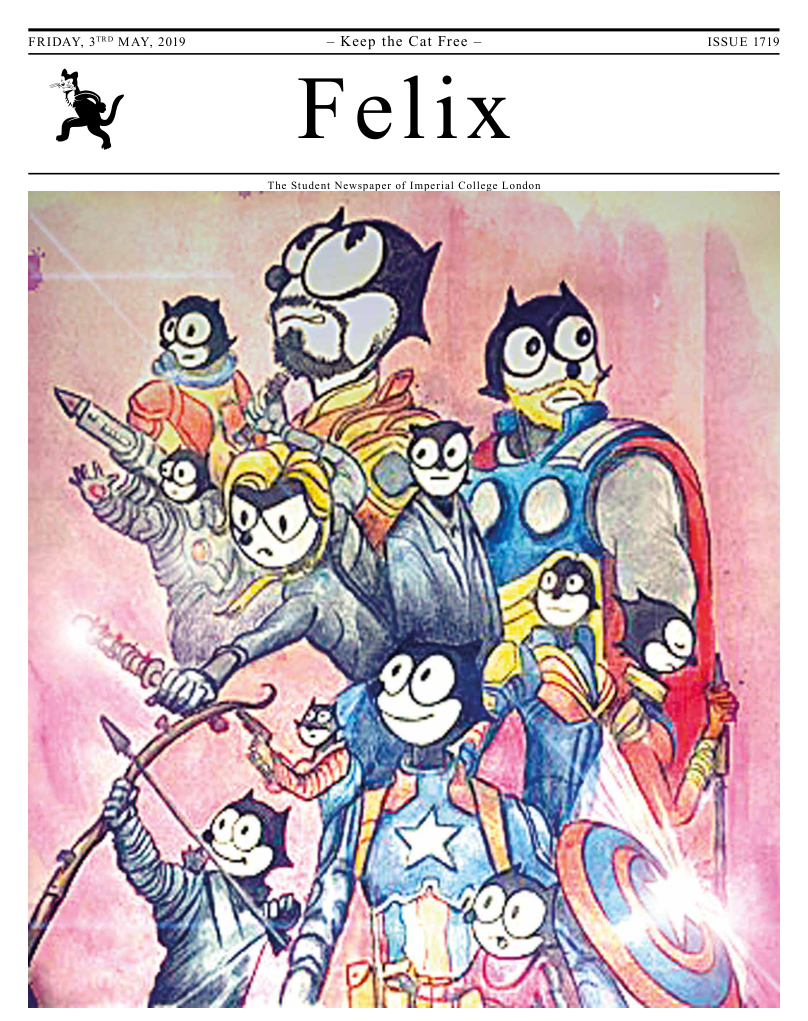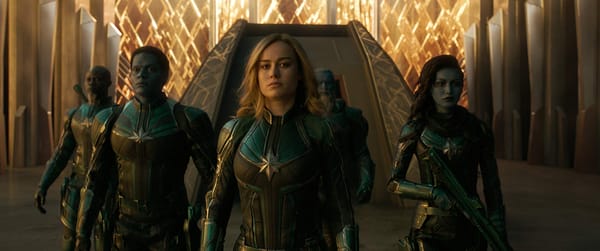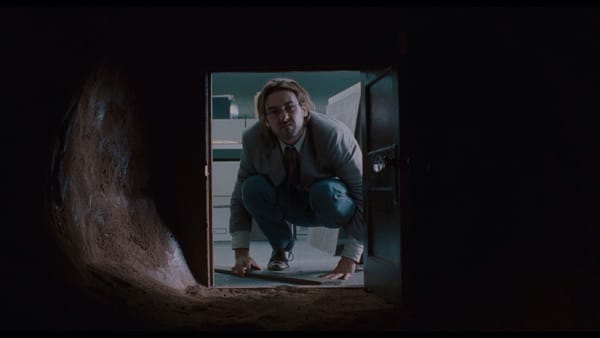Us
Plenty of thrills in this important doppelgänger horror movie but lacks coherence in its handling of socio-political themes. Go watch it.

Two years have passed by since Jordan Peele’s directorial debut, Get Out. It was a critical and commercial success and earned Peele an Oscar for Best Screenplay. I love Get Out. The thrill of riding this rollercoaster of a movie in a packed screening was overwhelming. Peele impressively toyed with the audience with suspense and laughs; the fine balance of horror and comedy was expertly executed. In addition to all of this, Peele weaved a satirical thread of systematic liberal racism into the plot. Spotting the subtle imagery and throwaway foreshadowing statements were like a treasure hunt. It was satisfying to unearth little nuggets of context and meaning in conversation with many friends who enjoyed it as much as I did. It was the balance of racial subtext with fantasy horror which created a film with mainstream appeal. With the bar set high, is Us as good as it should be?
Us centres on Adelaide (Lupita Nyong’o), her husband, Gabe (Winston Duke), and their children Zora and Jason (Shahadi Wright Joseph and Evan Alex), who are on a trip to their beach house in Santa Cruz. During her childhood, Adelaide went missing on holiday at the fun fair in Santa Cruz, where she recalls seeing her doppelgänger in a hall of mirrors. Adelaide is reminded of her childhood trauma and becomes increasingly fearful when coincidences begin happening. Indeed, things take a turn south when Adelaide’s family is confronted by their doppelgängers with sinister intentions.
Firstly, the film takes its time to develop Adelaide and her family thoroughly. It provokes a lot of sympathy for the central characters, which is where the horror stems from. When things go off the rails, we care about the characters — but it lacked jeopardy. As intense as the horror was, the film was too sympathetic for its characters. The twists and revelations of the plot were contrived yet predictable, but on the verge of forgivable because it was still enthralling to see it play out.

The true joy is in the subtle details of a scene and thematic breadcrumbs scattered on the ground for us to follow. There is an enchanting and heart-breaking scene concerning Elizabeth Moss’ doppelgänger character. The scene reveals so much about the character and plot, without the need to explain it in dialogue; Moss gives a terrific performance. All the cast display solid acting flair, but Lupita Nyong’o is the star of the show; she is incredible as Adelaide and her double, Red. The final set piece was effectively done, from Michael Abels’ chilling orchestral rendition of Luniz’s ‘I got 5 on it’, to the direction and choreography of the mesmerising dance sequence.
Thematically, Us plays with recurring motifs of mirrors and reflections, rabbits and Michael Jackson’s ‘Thriller’. The film doesn’t quite pull off the overall cohesiveness of its themes with the plot; the sense of wholeness and completeness that Get Out had was lacking as some elements of the film felt forced together like mismatching pieces of a jigsaw puzzle. There is still a lot to unpack from Us. I guess the film could be intentionally ambiguous in its purpose and, to the film’s credit, this allows for audiences to be able to discuss and theorise about the world of the film. My initial reading of the film was that it is about the disillusioned underclass of society. Although Peele emphasises that the film is about America, you could draw parallels to our side of the pond too. It could also be about mental health, guilt, the class divide or immigration, and the film’s vagueness allows for different interpretations. It makes for a thought-provoking watch, even though the focus is muddied. Likewise, the tone of the film is confused too. The sparse moments of humour didn’t always fit into the overall horror tone as well as it should have, and often felt like a heavy foot on the brake in the progression of the narrative. Having said that, I loved the mystical quality of the film akin to a Grimms’ fairy-tale, with a darkly sweet streak of malice running through its veins. This balance of morbidity and enchantment is beautifully complementary in the final act, where the sombre tone felt ajar with the rest of the film.
Us is not a film about race. Sure, there are thematic elements and imagery that could point to a racial subtext, but nowhere is the race of Adelaide and her family made to be their defining characteristic. As someone who made a seminal American film like Get Out, I believe that Peele’s deviation from racial politics is the next step towards equality in the industry and beyond, as contradictory as that sounds. Allow me to explain.
There has always been an imbalance of interesting and complex leading roles offered to white and black actors in Hollywood. The initial reaction to the underrepresentation of minorities was for films to highlight the historical and systematic racism. The plot of these ‘phase one’ black movies often centred around a character to overcome obstacles that were set by their race. The characters were defined by the colour of their skin; their African heritage was built into the narrative. From recent times, think 12 Years A Slave, Moonlight, Hidden Figures, BlaKkKlansman and Get Out. These are important movies in documenting and celebrating the African American identity, but it’s becoming increasingly ironic that talented black actors are pigeon holed into certain roles. Sometimes, a product of this system is the black-character-to-fuel-a-white-narrative-film (I’m looking at you Green Book).
Now, in response to the disproportional representation in cinema, mainstream movies are starting to make room for people of colour on screen and behind the camera. With this, we get diverse filmmakers championing an underrepresented wave of talent allowing non-white actors to take on exciting and complex roles that traditionally could have been a white-male-lead. This new attitude towards casting transcends race and would portray non-white characters, without the colour of their skin being a plot point. It is ‘phase two’, if you will, of black representation in Hollywood. By extension, we’d hope to see this kind of progress for all minorities in the industry.
Jordan Peele’s recent comments that he wouldn’t “cast a white dude as the lead” in his movies, hits home this ethos. He says “it’s not because I don’t like white dudes. It’s because I’ve seen that movie.” Peele is supporting the change in the industry for diversity — the point is not that he won’t cast a white actor for the main role, but that as a black American writer/director, he is giving important opportunities for black American actors. Just as Scorsese is the ultimate voice of the flawed white male lead character so revered in American cinema, Jordan Peele could have as big a cultural impact, leading the pack of a new generation of filmmakers. Us is an exemplar movie that can be categorised under this second phase of black American films, with the emphasis not on ‘black’ but on ‘American’ and ‘family’. It’s a small step, but an important one, and I am excited to see what comes next of this paradigm shift.
It’s not perfect, but Us delivers as a horror film and offers more for the viewer if you want to find deeper meaning. But don’t go looking for too much, as it ventures into preposterous territory and the allegory breaks down. Nonetheless, there is no doubt that a lot of meticulous work has gone into making Us, that makes it so rewarding to watch and talk about. Get Out was no fluke. Peele has confidently announced himself as the fresh and exciting voice of American cinema.
- 4 stars









